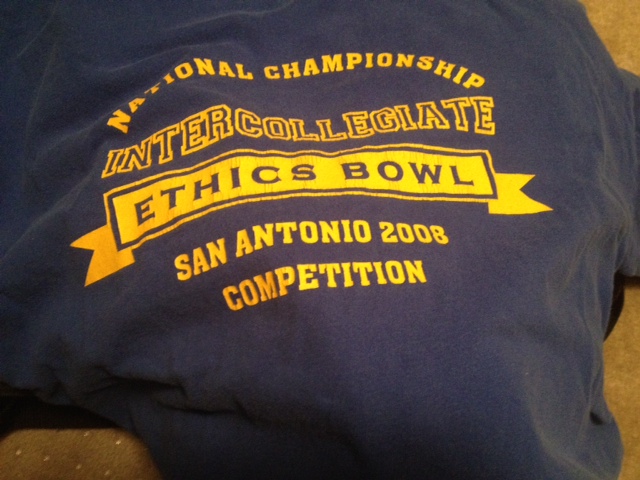You can find a lot of hubris in the world of academia.
Every once in a while, I get an email or a comment on an article challenging my arguments based on my credentials. They will claim I can’t possibly know what I’m talking about because I’m not a lawyer. Or they will insist I am wrong simply because somebody with a PhD behind his name holds another opinion.
Americans tend to defer to academic authority. But it should go without saying that an advanced degree doesn’t guarantee flawless, unassailable arguments. Quite simply, lawyers, professors and so-called academics are demonstrably wrong all the time.
The other day, somebody posted the following on the Tenth Amendment Center website.
If you have a desire to learn about this stuff, might I suggest reading peer reviewed articles via databases rather than dot com websites with obvious political agendas. I had a student try to cite this website… he did not pass.
So this professor, who is supposed to be all about teaching young people to think, reason and seek out truth, believes one can only find valuable information within the tiny enclave of academia. Obviously, this is an idiotic assumption, and it should probably tell you something about the credibility of this supposedly advanced thinker. When I read his comment, it occurred to me that you could translate “peer reviewed” to “approved within the echo chamber of acceptable thought.”
I don’t mean to demean academia. It serves a very important role. I spend a lot of time reading academic papers and scholarly books. But to assume somebody has nothing of value to add to a conversation simply because she lacks a certain degree, is arrogant at best, and perhaps intentionally deceptive.
You see, people belittle the messenger in order to marginalize the message without ever actually having to engage it. Instead of analyzing and refuting my argument, an opponent can take the easy way out and simply try to discredit me based on a perceived lack of credentials. But does that make the substance of my argument wrong? Of course not! No more then an advanced degree automatically makes every word uttered by some professor gospel truth.
You should never underestimate people based on their title or “pedigree.”
When I was working on my journalism degree at USF St. Petersburg, our journalism ethics class formed an Ethics Bowl team. The competition hosted by the Association for Practical and Professional Ethics features teams arguing ethical problems in a debate style format. Our little team of journalists won our regional competition and qualified for the 2008 National Ethics Bowl Championships in San Antonio, Texas.
So, off we flew to the Lone Star State to face off against the top 32 ethics debate teams in the U.S. Almost all of the other squads were made up of philosophy and pre-law students. Ethics falls right within their domain, after all. Nobody expected a bunch of journalists to make much of an impact in the competition. We lacked the academic background in moral philosophy and ethical reasoning to wade into the deep end of the pool with students who had dedicated their entire academic careers to the subjects.
Much to the shock of everybody in attendance, we made the finals and finished eighth overall, losing by just a few points to eventual winner Clemson.
How did we do it?
Simple. We played to our strengths.
Journalism teaches some valuable skills. As a journalist, you learn how to research, how to listen to multiple arguments and consider opposing points of view, and most importantly, you learn how to present information in a clear concise manner. We were at a disadvantage when it came to understanding the intricacies of moral philosophy. But we had a huge advantage in our ability to research, distill ideas down to their simplest terms and present the information in a clear concise way. We utilized these advantages as we prepared our cases, and smoked a lot of teams with pretty gaudy academic credentials. In the first round, we obliterated Dartmouth. I’m not going to lie, we were a proud bunch of journalism students.
I’ve taken those lessons with me. I use the same skills when I approach historical and constitutional issues. I may not always come up with the right answers, but I will gladly put up my work against any academic or lawyer.
The bottom line is hiding behind credentials and titles doesn’t work. Deal with the arguments. If you can.



